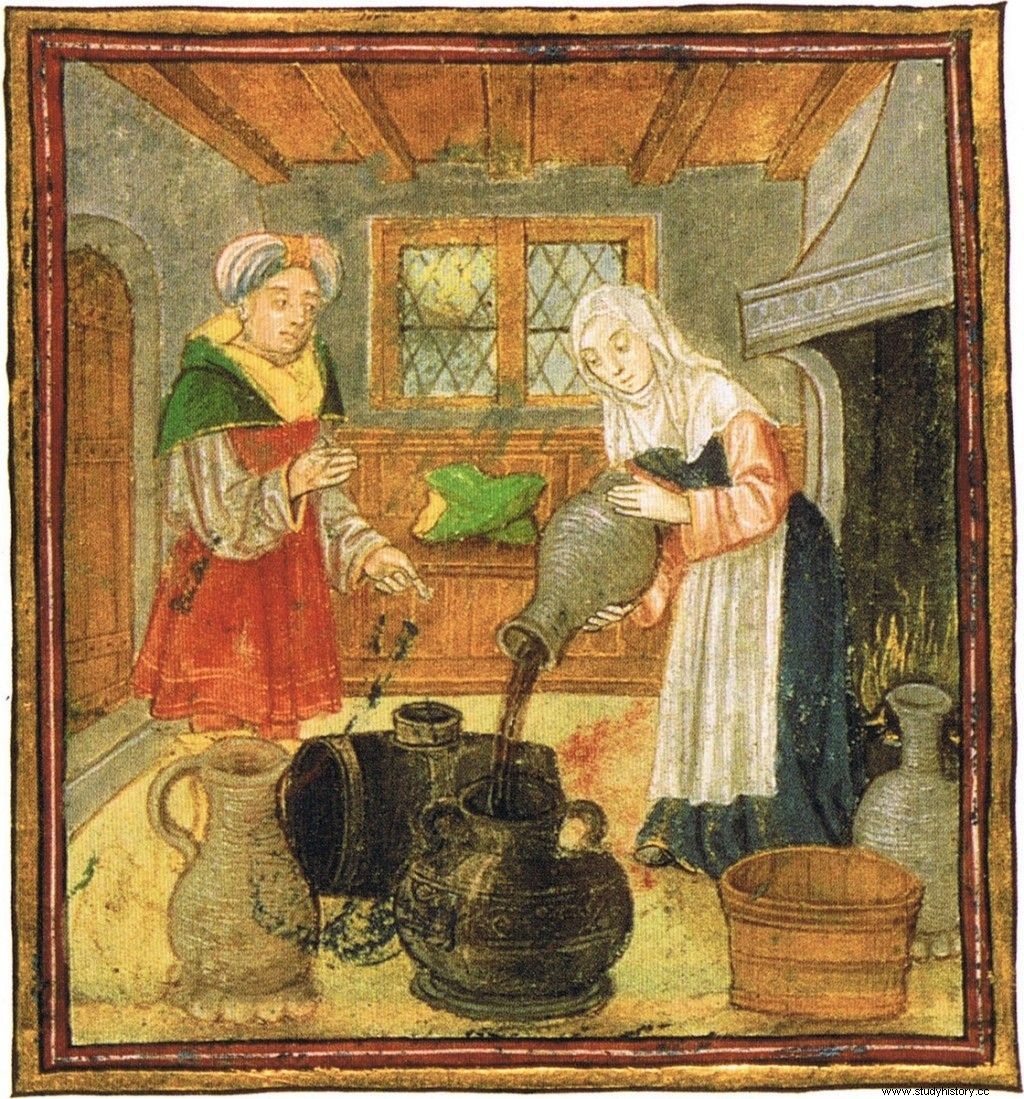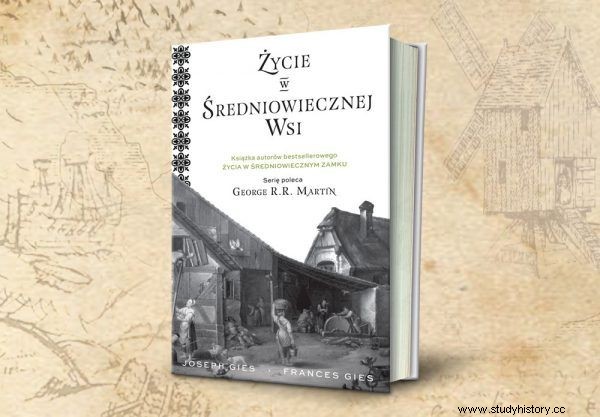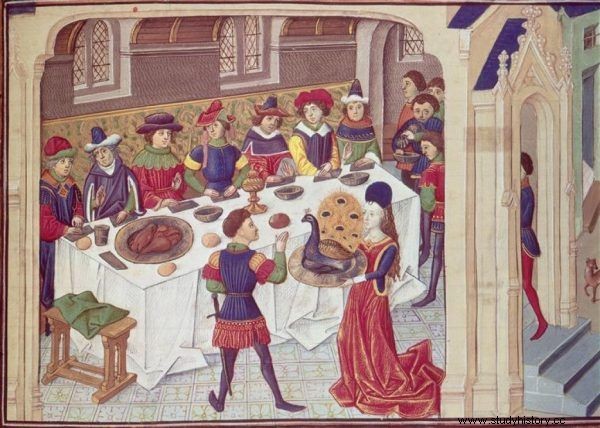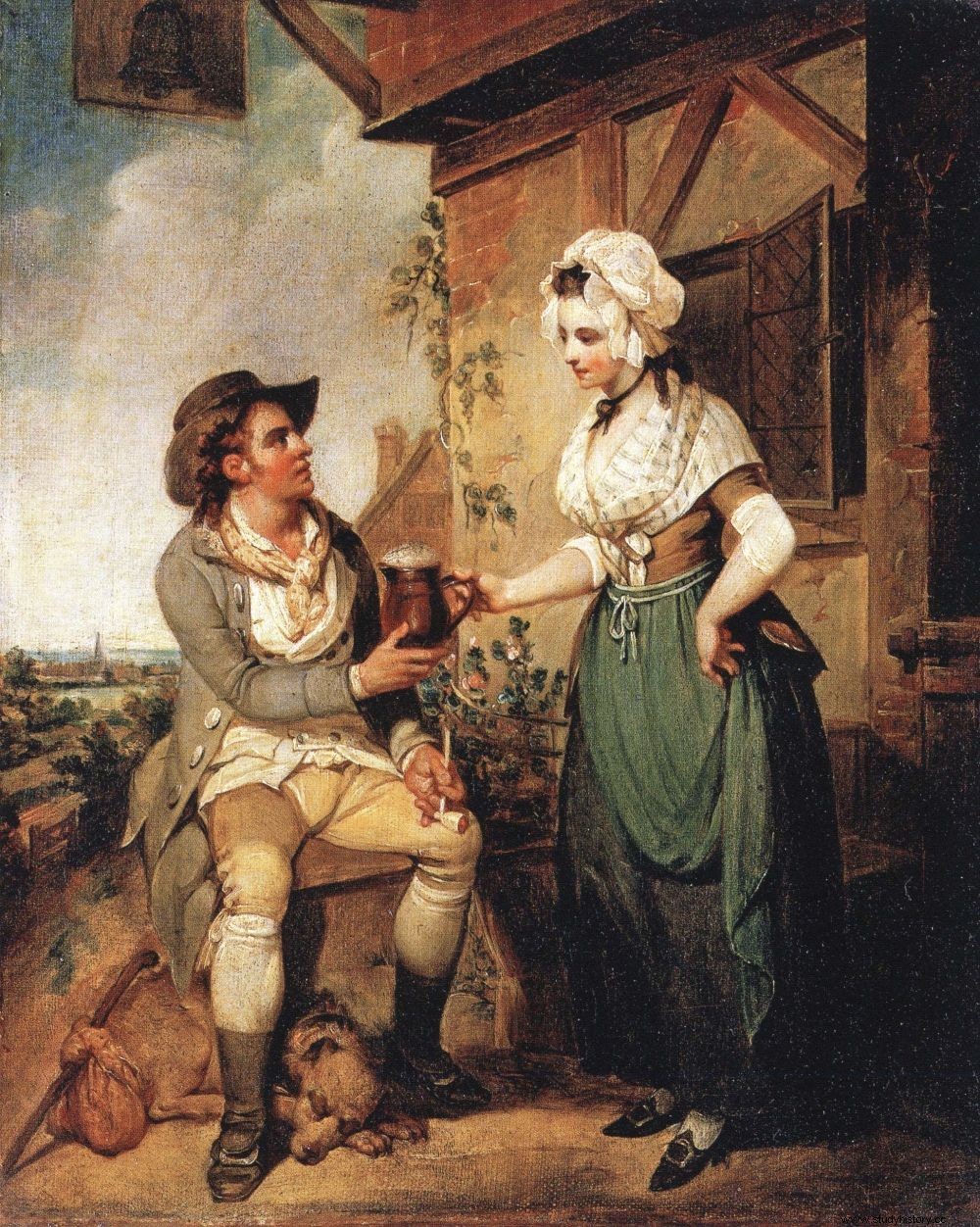Today, to practice this profession, you need to be particularly sensitive and have specialist knowledge. In medieval England, it was enough to be a woman. Do you have any idea what profession it is about? Many might say that it was the best profession of the Middle Ages.
At first glance, the medieval village appeared to the newcomer as a chaotic cluster of huts and farm buildings. However, next to most of the cottages there were a stable, a henhouse, a barn, and often a small bakery and a brewery. For taking a wife for himself, a self-respecting young farmer required her, as part of his marriage duties, to be able to prepare this drink. And if women were commonly involved in brewing, it was also natural for them to be rural tasters but , that is ... English beer quality testers!
Occupation - kiper
In the book by Joseph and Frances Gies, " Life in a Medieval Village ”We read that“ no village could do without tippers but who assessed the quality and monitored the prices of brewed beer for sale ”. Those interested in medieval times know that the position of the woman of this era was inseparable from the status of the man who supported her:for a virgin - father or stepfather, for a wife - a husband, and for a widow - a deceased spouse.
Representatives of the fair sex took care of the house and children, and helped men maintain the proper position of the family. It was only after the death of their spouse that they could count on a certain freedom and the possibility of doing business in the form of crafts or trade. It was the same with offices. Secular women did not stand alone in public life. With one exception - tippers but who enjoyed a unique status in the medieval community.
The Gies confirm that in medieval England " this office was the only one that women could hold, as they were mainly occupied with preparing the said drink ". Apart from the fair sex representatives, however, there were also tasters - especially in cities - also men.

The English ale was very important in medieval England. So much so that, apart from brewers, there were already brewers and testers of its quality.
Control conditions of but in town
Widespread consumption of but required a thorough quality control of the drink sold in such a large amount. Before we get into rural conditions, let's see how this matter was resolved in the cities. In England, the first brewers' guilds began to emerge in the 12th century. The most important task of this formal group was to secure the income of its members, but also to take care of the brand of the offered goods.
The inspectors, or tasters, selected by the guild masters from among their own group, had extensive powers:in all breweries belonging to the association, they could check not only the quality of the produced alcohol and raw materials, but also supervise all phases of production but . Penalties for spoiling beer varied - depending on the scale of the crime - from fines to exclusion from the guild.
City law upholds the quality of but
The regulations concerning the sale of beer, as well as checking its quality, were of course included in the municipal law. For example, the Worcester District Charter states:"Nobody will sell beer from home unless they put a sign on the door" or " Two testers, who are district citizens and people are sad and discreet , they will check the quality of the beer ". Today it is difficult to explain the meaning of the term "sad" in the case of a medieval beer tester. Maybe it was about abstinence. How about avoiding fights or quarrels?

Are you fascinated by the Middle Ages? All its secrets are revealed to us by researchers of this era, Joseph and Frances Gies in the book " Life in a medieval village " "(Sign Horizon 2018).
A village taster as important as a judge
In the village, the tipper office of but it was equally important, and one could even risk the thesis that it was much more important than in the city. As the Gies write in their book " Life in a medieval village ", In medieval village books he is mentioned on a par with the offices of usher, judge and reeve , i.e. the overseers of the land estate (the English equivalent of the village administrator). People for these positions were selected by the peasant community from among themselves. Appointed to office, they had to take an official oath that they would exercise it to the best of their ability. Because "there were punishments for disgracing the office during its performance."
The tipper position required constant readiness to work. As unground but it quickly turned sour, the host, whose wife had just brewed a beer, invited everyone from the neighborhood as if to a tavern. And in order to legally sell an amber drink, it had to be inspected by a local taster. In the English village of Elton, which is the main subject of the analysis in Giesów's book, the same families served as jurors, judges, and alcohol testers. From the mid-fourteenth century, however, we are dealing here with only men, because brewing slowly became the domain of male activity.
Kiperzy on both sides of the law
So the same families appear on both sides of the brewing law. For example, the Abovebrook family held the offices of judges and tippers, which did not prevent its member - Matilda - from selling weak but without checking its quality, for which (despite family protection) she paid a sixpence fine.
It turns out that the kiperzy must have had a hearing among the rural community, because in another quoted in " Life in a Medieval Village " ”The document reads that
Henry Godswein, rich farmer, taster ale and the judge (...) received a sentence in 1279, "because he refused to work during the second autumn compulsory work and because he made it difficult to work by ordering everyone to go home earlier, without the permission of the Bajlyphs" (the Lord's officials) .

Some families in medieval England managed to gather in their hands almost all the most important offices in the countryside.
Another illustrious resident of Elton, John Ketel, who twice served as judge and tipper ale, " smashed the head of Richard Smith's son Nicholas, beat Richard Benyt badly and, moreover, broke the mir against him ". As you can see, then, if we return to the postulate of "sadness" as one of the characteristics of beer testers and consider it to be the lack of fights and antics - not many in office have this quality.
Criminalizing beer scams
From the mid-fourteenth century onwards, women brewed beer more often than tested it (although - as mentioned above - brewing was slowly becoming dominated by men). And since some of them wanted to earn money quickly, they sold "weak", "incomplete" or "not worth the money" beer and - most importantly - without testing . As the Gies wrote, such conduct was more punished than adultery!
In the documents about medieval Elton, the list of female brewers who were subjected to greater or lesser penalties is quite long. It appears that through such practices, attempts were made to introduce a brewing license as this economic activity was not subject to any levy so far. The gies give some examples of penalties for breaking but :
Allota is known to brew for a penny and sometimes even half a penny, sells without testing and sometimes makes poor buts . Consequently, "she" owes two shillings. [Alice - Blythe's wife - sold] three times for a half a penny, and she sold it without testing, for which she received a twelvepence fine .

During most of the Middle Ages, women in England were the best profession of this era. They not only brewed beer, but also tested its taste. Henry Singleton's painting "The Ale House Door".
On the one hand, widespread consumption of beer brought with it the temptation to make a quick profit on weak and poor-quality beverages, and on the other hand - the need to maintain a good brand of beer. How important office in the Middle Ages was the tier of ale , we can visualize considering the fact that beer was one of the most important drinks of the people of England at that time. And the English went down in history as the most drunk nation of medieval Europe. The taster could drink alcohol with impunity - for who would dare to call a quality tester an alcoholic? So could you have imagined a better job?
Bibliography:
- Joseph, Frances Gies, Life in a Medieval Village , Znak Horyzont, Krakow 2018.
- Ian Mortimer, In town, outside, in a monastery. How to survive in Medieval England , Astra, Krakow 2017.
- Mika Rissanen, Juha Tahvanainen, A foamy history of Europe. 24 pints that made beers , Agora, Warsaw 2017.
